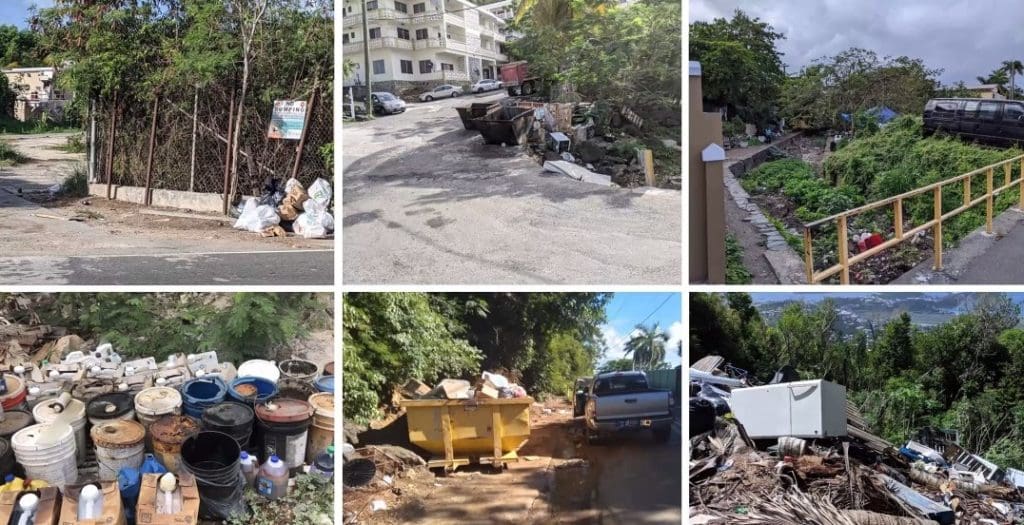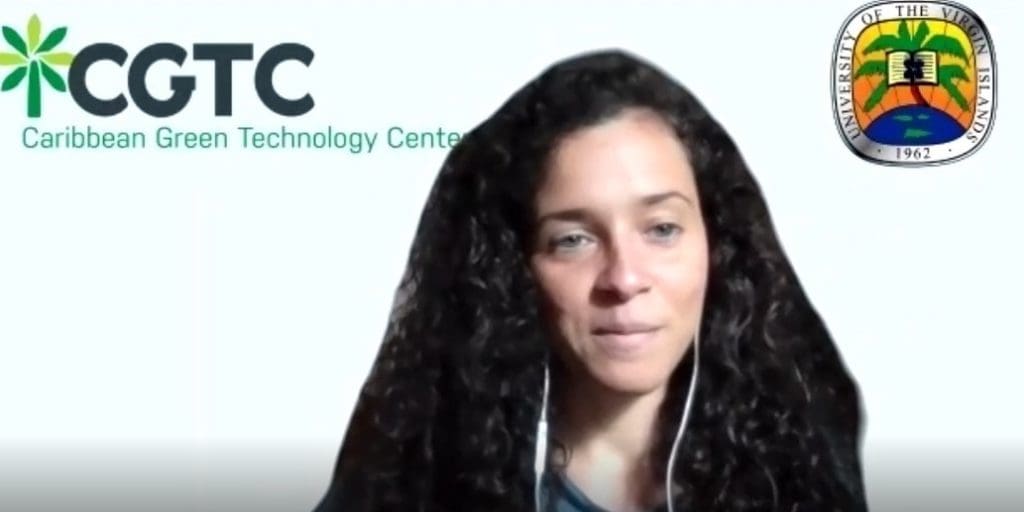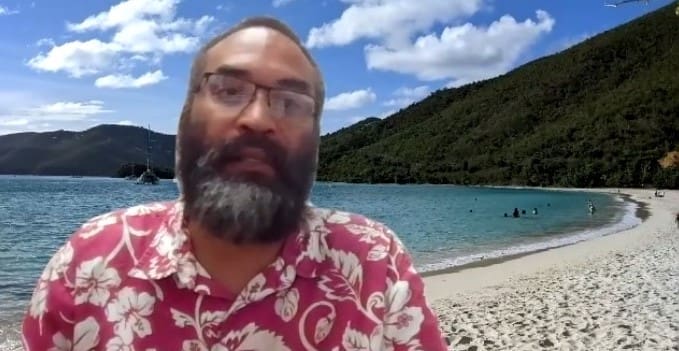
Napkins, food wrappers, Styrofoam, aerosol cans and coffee waste were among the top waste items listed by viewers of a University of the Virgin Islands Caribbean Green Technology Center presentation on sustainable living Wednesday afternoon. The Green Technology Center, the Department of Planning and Natural Resources, Waste Management Authority and the U.S. Environmental Protection Agency are co-hosting a series of webinars to educate community members about solid waste and sustainable materials management.
Ariel Stolz, a research scientist for the Caribbean Green Technology Center, spoke about a waste audit conducted in 2019.

“Food waste is really – not just in the Virgin Islands but all around the U.S. – one of the biggest issues that we have for the residential waste streams,” she said. “Sixty-two percent of the waste is actually recyclable or compostable, but it’s not being recycled or composted right now. So that means we have a chance to get this out of our dump sites. For places like St. Thomas, this number is even higher, about 70 percent.”
According to the presentation, 35 percent of waste in the territory is organic, 21 percent is paper, 13 percent is plastic, 11 percent is classified as “other” (contaminants and hazardous waste), 11 percent is textiles, 4 percent is glass, 4 percent is metals and 1 percent is electronic.
The Green Technology Center conducted a market analysis of the waste, and it is estimated that the possible revenue stream from recycling is $6 million for the territory, with aluminum cans, plastic bottles and cardboard being the most potentially profitable waste. However, there are also obstacles to recycling waste.
“The issue with this is that it doesn’t consider any of the costs, and there are a lot of costs to set up sorting, collection, infrastructure, transportation. And the big one for the islands is that because we’re so isolated, just shipping it, getting it off the island to a center that can recycle, is a big cost and has an environmental impact as well.”
One of EPA’s methods to combat excess waste before recycling is source reduction.
“We’re stressing and always stressed source reduction,” said Kimiko Link, EPA’s Region 2 Sustainable Materials Management Section representative. “Source reduction really has the highest benefits, the absolute most impacts, because you’re preventing all of the upstream impacts in greenhouse gases and energy and so forth.”
Greg Guannel, program director for the Green Technology Center, spoke about the lifetime of products that are used by consumers.

“In the Virgin Islands, we import 99 percent to 99.9 percent of things that we use,” said Guannel. “The food waste that you threw away this morning, at some point or the other they came by cargo, by air or boat at the port. Then they are being transported from the port or the airport to the grocery store or wherever you purchased this item. And there was a process associated with it, in terms of transportation costs and emissions associated with it, in terms of carbon dioxide and other environmental costs. You drink the water from the cup and throw away the cup … you drive to the bin site in order to dump your trash … a waste management truck comes in to pick up that bin and moves that bin to its final resting place.”
Guannel also spoke about the impact waste has on the environment, including becoming a breeding ground for bacteria and pests and leaking into the oceans.
Cordell Jacobs, the landfill manager at Bovoni Landfill, said “Everything that is trash ends up on Bovoni Landfill. Boats, construction and demolition material, oil, e-waste, everything.”
On St. Thomas, there are 15 sites with 20-yard bins that collect over 900 cubic yards of waste, and 25 locations with 4- and 6-yard bins. On St. Croix, there are four public bin sites with 9-11 bins and an extensive house service pickup for waste. The disparity in the number of bin sites on the islands is due to their landscapes.
“In St. Thomas, the reason why we have so many bin sites is because our terrain, our topography is completely different from St. Croix,” Jacobs said.
“There is a reason it was set up that way, but maybe it’s time for a change to add more locations,” said Stolz.
The presentation helped to highlight the importance of sustainable living in the territory, which includes source reduction and reuse, recycling and composting, energy recovery and treatment and disposal.
“This is important because we throw away so much trash, 40 percent more than the average American. I believe 450 tons each day,” said Stolz.
“Most residents just forget about it. They throw it [waste] in the trash and forget about it. But we know that the work we do is very important,” said Jacobs, who also mentioned that the disposal of used oil is an issue.
Jacobs said the old landfill is filled to capacity and that the eastern landfill began accepting waste in 2019 and is now about 100 feet high.
“It’s a huge problem to keep throwing the amount of waste that we’re throwing there every day. There’s not very many options to do anything else with it on island right now,” said Stolz.
Through understanding the high impact of waste streams, the territory may be able to reduce and divert waste more effectively.
Every Wednesday in May webinars will be held focusing on solid waste and the territory’s plans and progress toward lifestyle assessment, sustainable materials management and zero waste. Those who wish to tune in to the next webinar, “What Are Other Islands Doing With Their Materials?” on May 19 can visit https://cgtc-usvi.com/ to register.





